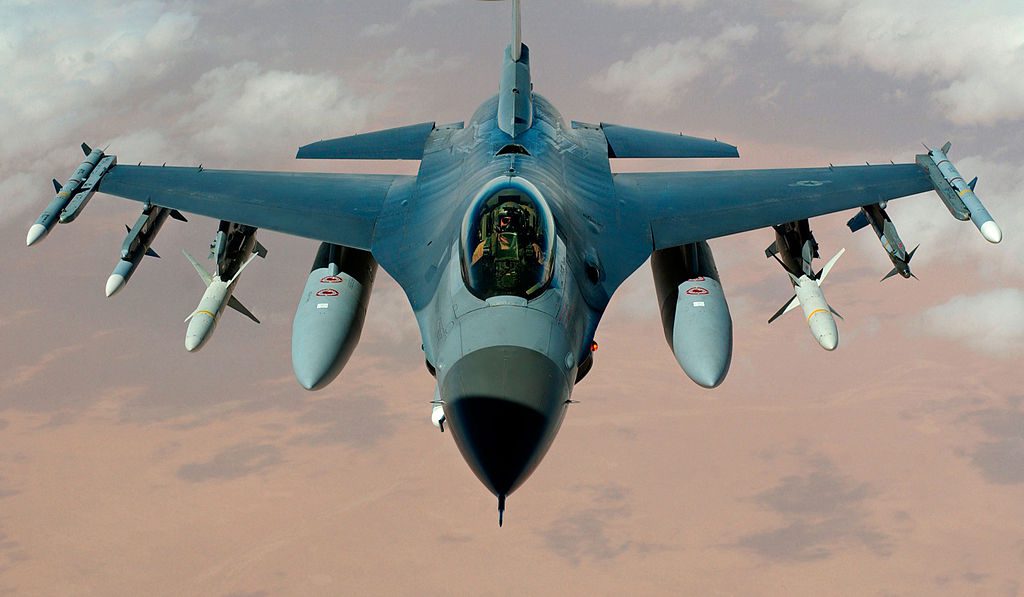Anna Stavrianakis is Senior Lecturer in International Relations at the University of Sussex, UK. She has worked with NGOs and campaign groups, and conducted interviews and participant observation with state officials, for over 15 years; and also a regular contributor to national media, writing for The Independent and The Guardian in the UK and engaging with journalists at international outlets.
This interview is the second in a series highlighting the research team for the Defense Industries, Foreign Policy and Armed Conflict project. You can view the previous interview with Sam Perlo-Freeman here.
WPF’s Aaron Steinberg corresponded with Anna Stavrianakis over email to learn more about her involvement with the project.
Aaron Steinberg: What was the focus of your previous research?
Anna Stavrianakis: My research in recent years has focused on UK arms export policy towards the Saudi-led coalition and the war in Yemen; and the negotiation and entry into force of the UN Arms Trade Treaty. A key theme to emerge out of this research is the role of arms transfer control regulations as a legitimating mechanism for liberal democracies’ arms export policies and liberal forms of militarism. This means that states such as the USA and UK claim to have the world’s most robust arms control regimes and yet supply weapons to some of the world’s worst humanitarian and human rights crises. However, it’s not simply an issue of hypocrisy in which the US and UK governments ignore their own arms control policies. Rather, it’s a case of mobilising these seemingly progressive policies in order to facilitate increased exports, and to claim to be benevolent while doing so. One related theme to come out of this research is the active strategies of not-knowing about human rights and humanitarian law violations in order to facilitate ongoing arms exports. Focusing on the UK, I have explored the ways the government claims not to know about violations of international law in Yemen, so as to be able to claim there is no clear risk of misuse of weapons exports, and hence no reason to stop supplying weapons to the Saudi-led coalition.
Aaron: What questions do you want to engage with through the current project with WPF?
AS: One question that I would love to engage further is how the UK government implements its policy which clearly states that it will not licence weapons exports where there is a clear risk they might be used in serious violations of international humanitarian law. Given the scale of evidence coming out of places such as Yemen, how is information marshalled, mobilised and sometimes ignored to enable exports to continue? How are state and corporate actors enmeshed in what I call a mutual fiction of deniability, in which state actors can mobilise claims of commercial confidentiality so as not to have to discuss what arms companies are doing, and corporate actors can hide behind the veneer of the state’s legal and policy framework? And in practical terms, how do arms transfers actually happen – what are the networks, routes and points of contestation in getting weapons produced in the UK to war zones such as Yemen?
Aaron: Are there specific events or policies that have spurred the growth of the arms trade in recent years?
AS: Major arms producers and importers look for any possible opportunity to spur the growth of the arms trade. After the so-called peace dividend of the end of the Cold War, 9/11 was mobilised to increase military spending and arms production and trade; counter-revolutionary repressive responses to the Arab Spring did the same. There have also been increases in the scale and scope of surveillance and control technologies that are less commonly associated with the “arms trade” – this is a good example of the way the arms trade is not just a foreign policy issue but one intimately bound up with the regulation and control – violently if necessary – of domestic social order.
Aaron: How might we disentangle various interests of corporate actors and foreign policy priorities?
AS: By not thinking of them as separate! Scholarly and public understandings of the arms trade are too often stymied by distinctions between the public and private sector, between state and corporate actors, and between domestic and foreign policy. These artificial distinctions lead us to ask about the “influence” of corporate actors on the state, as if they were two separate entities rather than an organically linked network. And these separations make us tend to think about the arms trade as a matter of foreign policy primarily, rather than of the violent policing of social order domestically as well. If we think instead in terms of a joint project between the state and (arms) capital, in which representatives of both circulate around common networks oriented towards similar goals, in projects that have domestic as well as foreign dimensions, we will do a better job of mapping and understanding the arms trade and its significance for wider political projects domestically and overseas.
Aaron: What changes would you like to see and where do you think change in the current structure of the arms trade is possible?
AS: I would like to see massive decreases in military spending by the world’s largest arms producers (the USA, Russia, China, Western Europe) and importers (Gulf states, India, China), and end to public subsidies on military production, the demilitarisation of police forces, to name just three measures. These aren’t about to happen any time soon. If it comes at all, change will come from protest, activist and labour movements making the status quo impossible and segments of states’ coercive forces joining them, making the state’s legitimacy and authority crumble and need to be renegotiated.


